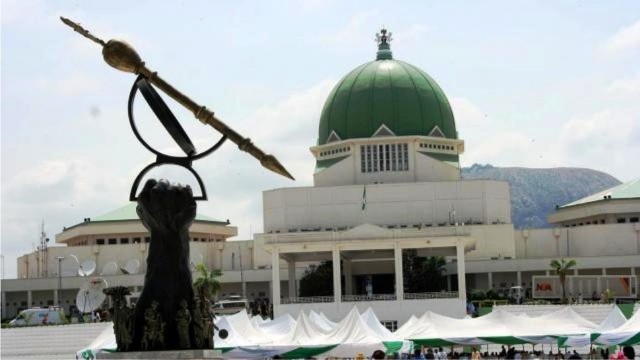Editorial
That Demand For Emergency Powers

As the National Assembly resumes from
recess this week, Nigerians may have
to start a debate on whether or not President Muhammadu Buhari should be granted special (emergency) powers to fix the economy. Already, the controversy on the subject is indicative of its importance.
According to reliable sources, the Presidency has put together what is tagged as “Emergency Economic Stabilisation Bill 2016” and would formally present it to the National Assembly when it resumes. Already, the contents and prayers of the bill are so far-reaching to justify fears in some sections of the country.
Some analysts have stated that Nigeria had gone through two earlier recessions, one of which was under the same Muhammadu Buhari. They insist that the administration does not need any emergency economic powers because the same was applied on the previous recessions and it failed.
They believe that a different strategy was required because the fall of the mono-product economy that caused the last recessions is the same responsible for the current one. Apart from revelations that such powers were used to rob Nigerians in the past, the hope of doing things the same way and expecting something different is particularly condemnable.
While re-echoing the saying that the Nigerian President is the most constitutionally empowered in the world, they feared that such extra powers can also be abused. The thinking is that a President, who spent all his adult life in the military, has all the instincts of a dictator. Of course, power corrupts and absolute powers even worse.
That is why we think that this piece of legislation should be looked at with every sense of maturity and responsibility. It is true Nigeria is in a recession and many persons cannot wait to get out of it, but should Nigerians lose their freedoms in the process or be exposed to lawless state, where one man will be empowered to do as he pleases?
Already, the administration has given reason to many people to doubt their understanding of economic matters and the freeness to deal with all Nigerians fairly and equally. People still refer to the lopsided appointments at the federal level, the indifference to the fatal activities of herdsmen and the denials of electoral promises made to Nigerians.
The Tide doubts that the emergency powers are truly needed for the purpose of doing something different for the economy. This is moreso, because if the President is to pursue any major change in the way the economy is managed, the first step should have been to fire the economic team. To expect the same persons to introduce change is out of order.
We are indeed bothered that some persons would want Nigeria to drop aspects of her laws before they can function. Nigerians chose democracy because it has answers to all these challenges, especially the economy. Anyone who is not able to function under a lawful State is not fit to operate in a democracy and should look elsewhere.
In fairness to the Federal Government, the emergency powers may be well intended and aimed at healing the economy, but the details of the law and its dependable implementation is what everybody cannot vouch for. This is even made stronger by the promulgation of Decree 20 in 1984 under the same circumstance that compromised the lives of Nigerians.
In the current bill, the administration seeks wide ranging powers to among others drop some extant laws and use executive orders. If allowed, the law will empower the administration to sell some important national assets, drop due process in contract awards and do virement unilaterally among others.
The administration needs a lot of trust to be given such powers, which can easily slide into autocracy. As a country that has become politically warped, the sale of national assets and award of contracts without due process can be too much of an advantage for a particular people.
The National Assembly must take all these into consideration as it works on this bill that is full of so many loopholes for national calamity.
Editorial
Resolve Rumuwoji Market Issues, Others

Editorial
As NDG Ends Season 2

Editorial
Beginning A New Dawn At RSNC

-
Politics2 days ago
2027: NIGERIANS FAULT INEC ON DIGITAL MEMBERSHIP REGISTER DIRECTIVE
-

 Environment2 days ago
Environment2 days agoLAWMA Director Says Sweeping Reforms Have Improved Waste Collection
-
Politics2 days ago
LP Crisis: Ex-NWC Member Dumps Dumps Abure Faction
-

 Sports2 days ago
Sports2 days agoAbia Not Sure To Secure continental Ticket
-

 Politics2 days ago
Politics2 days agoUmahi Dismisses Allegations On Social Media, Insists On Projects Delivery
-

 Transport2 days ago
Transport2 days agoFAAN Announces Pick-Up Points for Go-Cashless Cards
-
Sports2 days ago
La Liga: Yamal Records First Career Hat-trick
-

 Sports2 days ago
Sports2 days agoCity Survive Leeds’ Challenge At Elland Road

